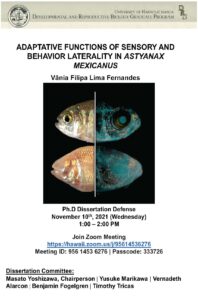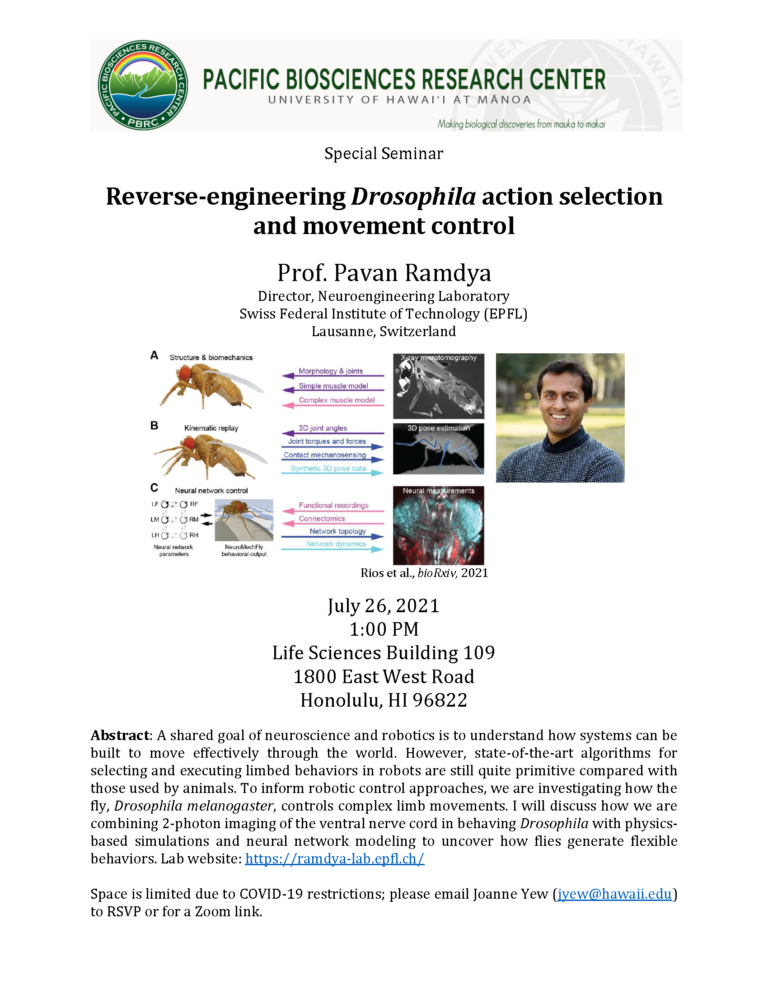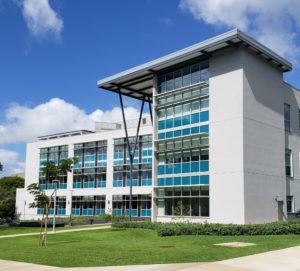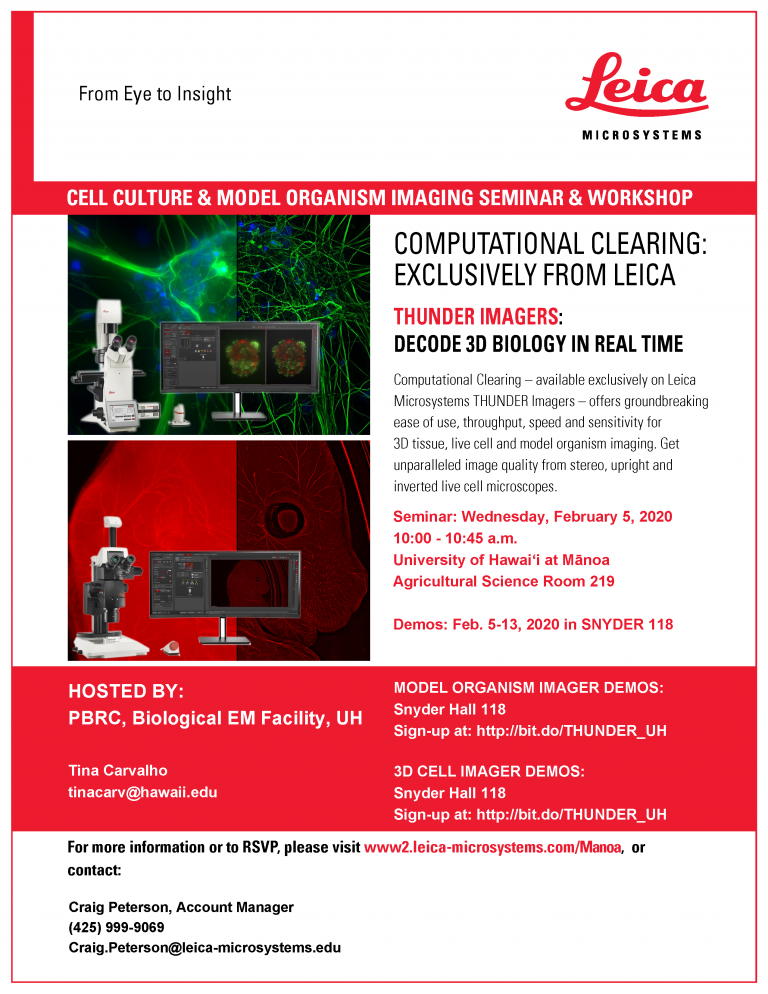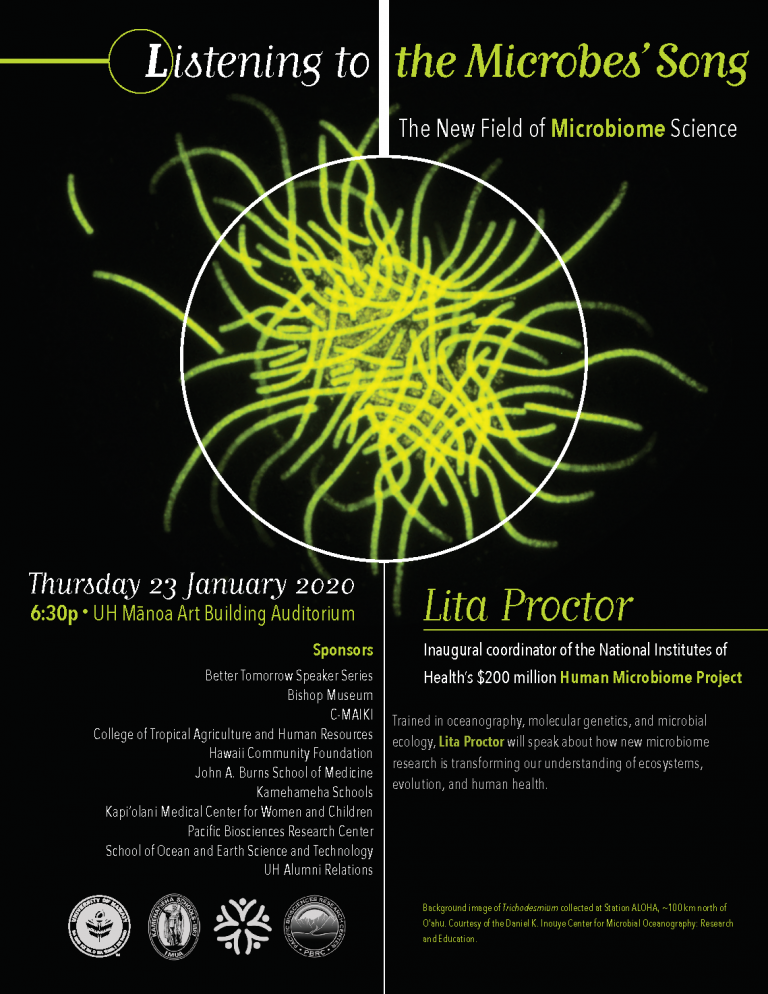Integrative Center for Environmental Microbiomes and Human Health
Recent and Upcoming Events
April 28, 2025
New RFPs for the ICEMHH COBRE Pilot and Core Bucks Programs!
The Microbiome COBRE has 2 exciting funding opportunities for projects focusing on the intersection of environmental microbiomes and human health. These opportunities include a Pilot Project and Core Bucks vouchers. The RFPs, including application instructions and deadlines, can be found by clicking on the link below.
Click here for more information
August 19, 2024
New RFPs for the ICEMHH COBRE Pilot, Collaboration, and Core Bucks Programs!
The Microbiome COBRE has 3 exciting funding opportunities for projects focusing on the intersection of environmental microbiomes and human health. These opportunities include a Pilot Project, Collaboration Projects, and Core Bucks vouchers. The RFPs, including application instructions and deadlines, can be found by clicking on the link below.
Click here for more information
October 28, 2022
New RFP for the ICEMHH COBRE Core Bucks Program!
The goal of the Microbiome Core Bucks Program is to provide funds to investigators to further (or initiate)
their research on microbiomes by awarding Core Bucks to be used in any of the following Cores for studies
related to environmental microbiomes and their potential impacts on host or environmental health: MICRO
(Microscopy Core), MGAL (Microbial Genomics Core), and InSTAR (Insectary Core). Awards will be granted
in the form of vouchers to defray the cost of Core services, no additional funding will be provided for
expenses such as personnel, materials, shipping or IDC.
Click here for more information
Zoom Meeting
November 29-30, 2021
NIH COBRE EAC/IAC Mentor Zoom Meeting
Zoom Conference
Schedule Pending
An annual gathering of ICEMHH external and internal advisory committees, external and internal mentors, principal investigators, research project leaders, pilot project investigators, core leaders, and project support members to discuss the progress and goals of the Integrative Center for Environmental Microbiomes and Human Health (ICEMHH).
Please contact microbre@hawaii.edu for more information.
November 2021
Advertising for a MICRO Core Faculty Position
The University of Hawai'i at Mānoa is currently advertising a position for a new faculty member who is skilled at using advanced imaging techniques in their research. A main responsibility of this position will be to serve as Core Leader for the ICEMMH MICRO facilities Core.
Please contact microbre@hawaii.edu for more information.
Zoom Meeting
November 8, 2021
MS Proposal Seminar - Metabolite Analysis using Direct Analysis in Real Time Mass-Spectrometry
Zoom Meeting
10:00 AM HST
The seminar will address the development of mass spectrometry-based methods for the analysis of amino acids and other small molecules from biological samples.
Please contact Nicolas Cetraro (ncetraro@hawaii.edu) or Joanne Yew (jyew@hawaii.edu) for a Zoom link.
July 26, 2021
Reverse-engineering Drosophila action selection and movement control
Zoom Meeting or Life Sciences Building 109
1:00 PM HST
A shared goal of neuroscience and robotics is to understand how systems can be built to move effectively through the world. However, state-of-the-art algorithms for selecting and executing limbed behaviors in robots are still quite primitive compared with those used by animals. To inform robotic control approaches, we are investigating how the fly, Drosophila melanogaster, controls complex limb movements. I will discuss how we are combining 2-photon imaging of the ventral nerve cord in behaving Drosophila with physics-based simulations and neural network modeling to uncover how flies generate flexible behaviors. Lab website: https://ramdya-lab.epfl.ch/

May 28, 2021
Doctoral Defense Presentation - Drivers of variation in Aedes albopictus and its microbiome at various scales in Hawai`i
Zoom Meeting
1:00 PM HST
The microbiome can influence several physiological traits of mosquitoes including immune regulation, nutrition uptake, and metabolism. The microbiome can even alter a mosquito’s ability to transmit disease (i.e., vector capability), which is likely associated with direct or indirect interactions between the mosquito microbiome and host-residing pathogens. Previous studies have shown that the mosquito microbiome can vary significantly between and within mosquito species due to numerous factors such as diverse ecological habitats, maternal transmission, and complex interactions between microorganisms that co-occur within a host. While there have been studies characterizing the microbiome of some medically-important mosquitoes, the specific environmental and ecological factors that may contribute to mosquito microbiome diversity remain poorly understood.
To address the gaps in the existing knowledge of mosquito microbiome for disease-prevention strategies, I centered my research around understanding how specific environmental and ecological factors influence the diversity in the bacterial microbiome of the Aedes albopictus mosquito. Aedes albopictus is widespread throughout Hawai’i, and is a major vector of the Dengue virus and the rapidly emerging Chikungunya virus. I sought to assess how the microbiome varied across a landscape, and amongst distinct mosquito tissues and co-occurring microorganisms. To conduct my research, I collected over 1,000 mosquitoes across the island of Maui and in Mānoa Valley on Oʻahu over a three-year period. I then characterized the Aedes albopictus microbiome and bacterial diversity using DNA sequencing that targeted a bacterial gene (16S ribosomal DNA) containing conserved regions across taxa as well as highly variable regions which are species-specific. Performing comprehensive studies on mosquito microbiomes has the potential to improve strategies for disease preventions that utilize microorganisms to create mosquitoes incapable of transmitting disease; Thus, improving human health and reducing the number of mosquito-related deaths.
Zoom Meeting
November 30 - December 1, 2020
NIH COBRE EAC/IAC Mentor Zoom Meeting
Zoom Conference
7:00 AM - 12:30 PM HST (Nov. 30)
7:00 AM - 11:45 AM HST (Dec. 1)
An annual gathering of ICEMHH external and internal advisory committees, external and internal mentors, principal investigators, research project leaders, pilot project investigators, core leaders, and project support members to discuss the progress and goals of the Integrative Center for Environmental Microbiomes and Human Health (ICEMHH)
Zoom Meeting
November 9, 2020
NIH COBRE IAC Zoom Meeting
Zoom Conference
9:00 - 11: 00 HST
An annual gathering with the internal advisory committee to discuss the progress and goals of the Integrative Center for Environmental Microbiomes and Human Health (ICEMHH).
August 2020
Move to the UHM Life Sciences Building
The 3 COBRE ICEMHH core facilities and individual research laboratories will complete the move to the new Life Sciences Building on the UHM campus.
https://www.hawaii.edu/news/2020/06/22/life-sciences-building-new-era/
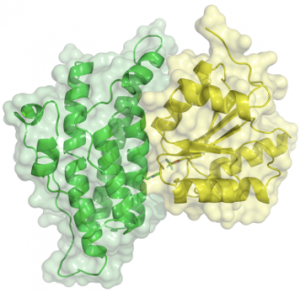
February 28, 2020
Structural Insights into Fungal and Microbial Two-Component Signaling
Pathways - Ann West
Kewalo Marine Laboratory Library
3:30 - 4:30 PM HST
Reversible phosphorylation of proteins involved in signal transduction pathways is a common
form of regulation in all three domains of life. A His-to-Asp phosphorelay system in the model
organism, Baker's yeast Saccharomyces cerevisiae, allows cells to respond and adapt to a
variety of environmental stresses, such as hyperosmotic and oxidative stress conditions. The
first part of the seminar will highlight how knowledge of three-dimensional structures of fungal
and bacterial two-component signaling proteins can provide unique insight into protein
function, the role of phosphorylation, protein-protein interactions, and signaling fidelity. Since
homologs of these signaling proteins are not found in mammals, fundamental studies of these
pathway components are expected to provide a basis for future development of antimicrobial
and/or antifungal therapeutic agents. The second part of the seminar will focus on the
Oklahoma COBRE in Structural Biology, for which I have
been director for the last 8 years. Some of our successes and challenges from a program
administration perspective as well as from a junior faculty career development perspective will
be presented.
For further information contact Dr. Joanne Yew, jyew@hawaii.edu.
February 24, 2020
An Enigma of 65 Years: Glucose-Sensing Neurons - Greg Suh
Agricultural Science 219
4:00 - 5:00 PM HST
Glucose-sensing neurons regulate neuronal activity in response to glucose or its metabolite. According to glucostatic hypothesis proposed by Jean Mayer in 1953, feeding is regulated by neurons in the brain that sense glucose levels in the blood. Despite of subsequent discovery of glucose-sensing neurons through electrophysiological approaches by Oomura et al (Nature 1963), the physiological role of glucose sensing in feeding or any related event remains unclear.
I will discuss two types of glucose-sensing neurons in my talk: 1) a population that mediates carbohydrate consumption in animals - flies and mice (Dus et al, Nature Neuroscience 2013, Neuron 2015); 2) a population that regulates the release of insulin and glucagon in flies (Oh et al, Nature 2019).
For further information contact Dr. Joanne Yew, jyew@hawaii.edu.
February 5-13, 2020
Leica THUNDER Computational Clearing Workshop - Jen Lee and Craig Peterson
Agricultural Science 219
10:00 - 11:00 AM HST
The PBRC Biological Electron Microscope Facility will be hosting a Leica THUNDER Computational Clearing Workshop at the University of Hawaiʻi at Mānoa, February 5-13 (see flyer for details). THUNDER Computational Clearing is a Leica-developed technology that instantly removes the haze inherent to thick 3D samples acquired using widefield microscopy. To see a range of different samples and applications, please check out the recently updated gallery of THUNDER images.
There will also be an opportunity to demo the THUNDER technology in person Feb. 5-13 in Snyder Hall Room 118. You can sign up for a demo slot here.
Leica will be bringing 2 systems to the Mānoa campus:
1) The 3D Cell Culture THUNDER Imager, based on the fully motorized DMi8 inverted research microscope. It is ideal for cell culture, tissues, fixed samples, and cleared tissues.
2) The Model Organism THUNDER Imager, based on the M205 FCA stereomicroscope, is intended to image embryos such as zebrafish, Xenopus, mice, C. elegans, as well as whole organs.
For further information contact Tina Weatherby Carvalho, tinacarv@hawaii.edu or Dr. Marilyn Dunlap, mdunlap@hawaii.edu.
January 23, 2020
Listening to the Microbes' Song - Lita Proctor
UH Mānoa Art Building Auditorium
6:30 PM HST
Trained in oceanography, molecular genetics, and microbial
ecology, Lita Proctor will speak about how new microbiome
research is transforming our understanding of ecosystems,
evolution, and human health.
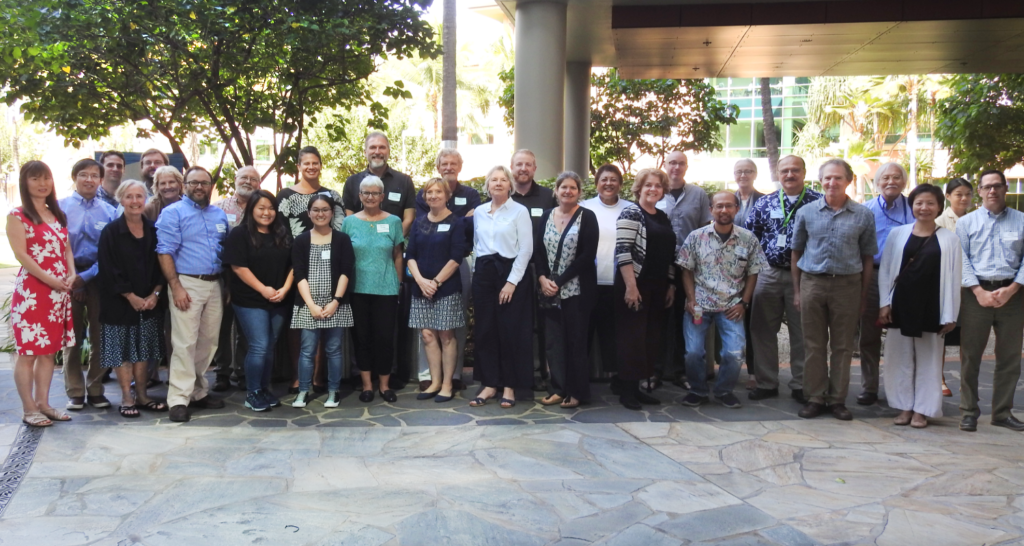
December 4-6, 2019
NIH COBRE EAC/IAC Mentor Meeting
UH Mānoa Campus - Various Locations
An annual gathering of ICEMHH external and internal advisory committees, external and internal mentors, principal and junior investigators, core leaders, and project support members to discuss the progress and goals of the Integrative Center for Environmental Microbiomes and Human Health (ICEMHH).
Integrative Center for Environmental Microbiomes
and Human Health
1800 East-West Road
Honolulu, HI 96822
microbre@hawaii.edu
808-956-5222
